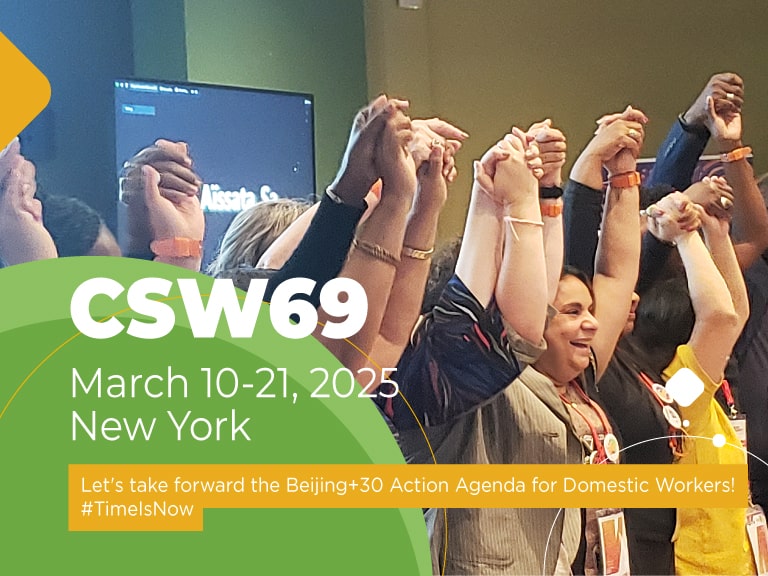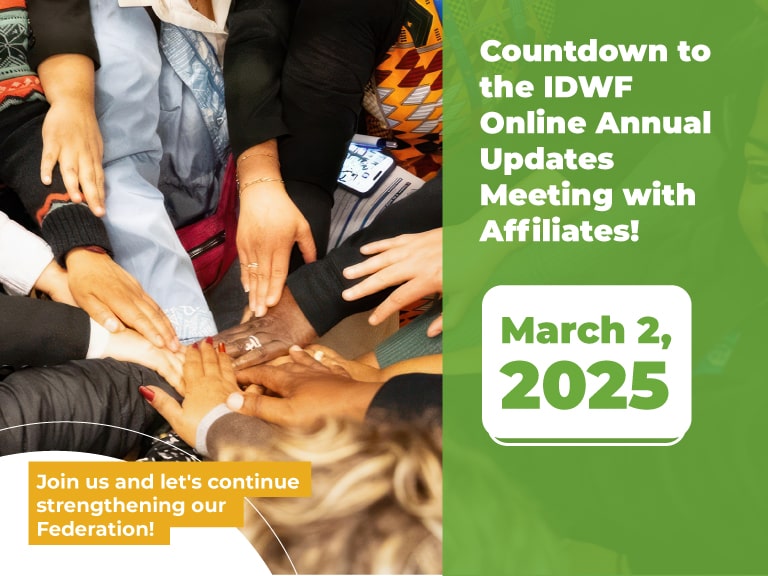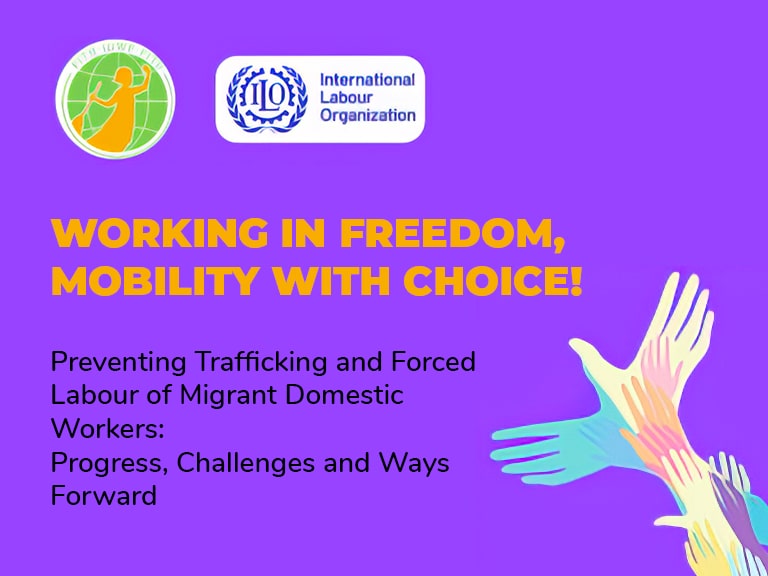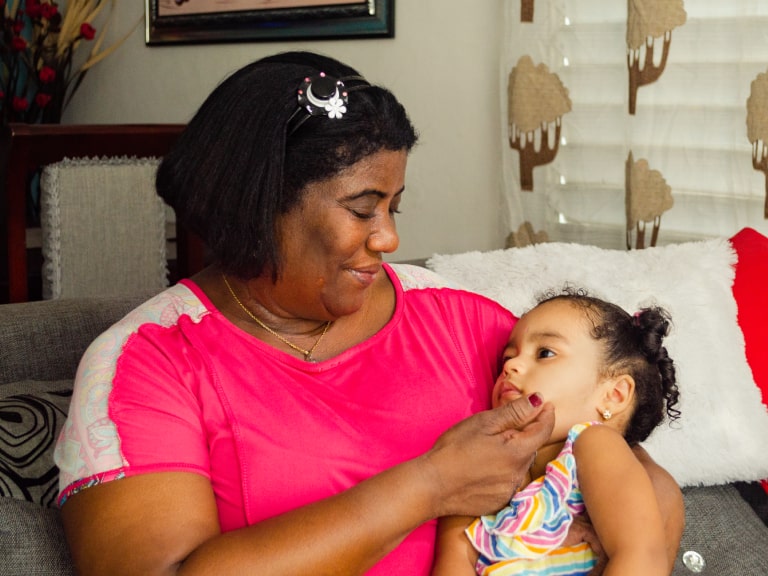- This event has passed.
CSW60: Human trafficking must be called by its true name – modern slavery – a dishonour of our common humanity, says Shirley Pryce
Contributors: Jill Shenker
Shirley Pryce (Jamaica Household Workers Union, Caribbean Domestic Workers Network, International Domestic Workers Federation) spoke at the UN Commission on the Status of Women 60 (2016) panel on Combatting the Trafficking of Women and Girls: What Role Can the Private Sector Play in Addressing and Preventing Human Trafficking and Modern-day Slavery?
Details
Shirley Pryce (Jamaica Household Workers Union, Caribbean Domestic Workers Network, International Domestic Workers Federation) spoke at the UN Commission on the Status of Women 60 (2016) panel on Combatting the Trafficking of Women and Girls: What Role Can the Private Sector Play in Addressing and Preventing Human Trafficking and Modern-day Slavery?
Good afternoon distinguished ladies and gentlemen. I am honoured to be here this afternoon to address you on this important topic
Modern slavery is the fastest growing criminal enterprise in the world. It is a profit driven business; the International Labour Organization (ILO) estimates that roughly 21 million victims globally are currently trapped in modern day slavery
Poverty and lack of economic opportunity make women and children potential victims of traffickers associated with international criminal organizations. They are vulnerable to false promises of job opportunities in other countries. Many of those who accept these offers from what appear to be legitimate sources find themselves in situations where their documents are destroyed, their selves or their families threatened with harm, or they are bonded by a debt that they have no chance of repaying.
While women and children are particularly vulnerable to trafficking for the sex trade, human trafficking is not limited to sexual exploitation. It also includes persons who are trafficked into ‘forced’ marriages or into bonded labor markets, such as sweat shops, agricultural plantations, or domestic service. As domestic workers for 31 years and now work with domestic workers across the world I heard and work with domestic workers who found themselves in the above mention situation.
According to a study in Hong Kong one in six migrant domestic workers is victim of force labor and was trafficked. I know of cases where domestic workers were recruited by agencies to work abroad and report their experience to me saying, quote “I was raped and beat continually while handcuffed to a door of an abandoned house. Eventually, I made my escape, but not before my papers was confiscated, driver’s license and social security card. With no proof of my identity, I could not acquire adequate shelter. I felt like an animal that has been cast into the street. My life became a scenario of sojourning from one homeless shelter to another. In reality, no female desires to be a part of this nightmare. Most of us were incarcerated in basements, underneath casinos and in abandoned warehouses. Our desperate cries for help were silenced by the walls, which separated us from the rest of the world. While tourists roamed the streets of Las Vegas admiring the architectural beauty and the celestial lights, which permeated the night sky, we, the victims, were in perpetual fear for our live” and this is one of several cases
I myself was not trafficked but is a victim of abuse on the job talk about slavery I have been there. I remember working with a family of five and when I prepared the meals I could not eat it. I was a live in domestic worker and trying to grow by going to school but on my return to the house I was locked out and had to sleep in the dog house several times with the dog who became my best friend. My employer would let me inside the house in the morning as if nothing happen, no question asked of me.
Through perseverance I finish my first degree in Social Work and just recently finish my Masters degree at Penn State University in Labour and Global workers right.
Human Trafficking /modern day slavery is real it is Big Business yet right across the world a blind eve is turn against this violent act
Yes human trafficking continues to be a horrific human rights problem both in the United States and around the world. It ought to concern every person, because it is a dishonor of our common humanity. It ought to concern every community, because it tears at our social fabric. It ought to concern every business, because it distorts markets. It ought to concern every nation, because it endangers public health and fuels violence and organized crime. I’m talking about the injustice, the outrage, of human trafficking, which must be called by its true name – modern slavery.
Human trafficking is legal nowhere, yet happens everywhere. If we are to finally eradicate this wicked act once and for all it will require significant additional resources, as well as sustained cooperation among everyone.
The prevention of human trafficking requires several types of interventions. Some are of low or moderate cost and can have some immediate impact, such as awareness campaigns that allow high-risk individuals to make informed decisions. Strong laws that are enforced are an effective deterrent.
Further resources need to be directed towards a multi-sector approach to dismantle the business of trafficking by increasing the risk for perpetrators and enablers and decreasing their profits. The financial resources currently directed towards fighting modern slavery are alarmingly low.
Having lived and experienced the life as a “domestic worker” who was treated as an animal deprived of certain human rights as a woman in my own country Jamaica I am more emboldened in my advocacy work to ensure that “domestic workers” in my country across the Caribbean and the world the majority of whom are Women can enjoy the rights as ordinary workers under the Law.
We must pool our voices together, we must continue to build network, we must continue to strengthen our Trade Unions and private sector and government must be more responsive to the cause.







